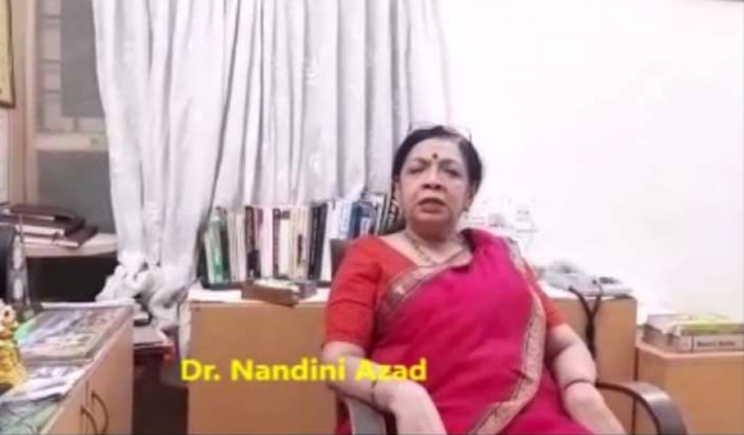The President of the General Assembly of the United Nations convened a High-level meeting of the General Assembly on the appraisal of the United Nations Global Plan of Action to Combat Trafficking in Persons, was held recently in the General Assembly Hall of the United Nations Headquarters in New York.
Working Women’s Forum (India), President Dr Nandini Azad was one of the two Indian institutions in the Asia Pacific that presented virtually in panel-1 on the theme “The Global Plan of Action and enduring trafficking issues and gaps including, inter alia, the trafficking of women and children, particularly girls, for the purpose of sexual exploitation” on the 76th session of the United Nations General Assembly (UNGA) on the appraisal of the United Nations Global Plan of Action to Combat Trafficking in Persons.
Speaking on the occasion Dr Nandini Azad said poverty is one of the biggest challenges that has created that ogre of trafficking of Women and Children. “The Global Plan of Action for Trafficking developed by United Nations mentions very clearly that the SDG-1, poverty eradication/reduction are the ways to curb it.
The second and most important issue is SDG-5 recognized as Gender equality states that Gender discrimination, Gender based violence as well as Gender inequity is yet another cause makes girls and women victims of trafficking, Nandini said.
Third and most important, we discover and the whole world is well informed about the root cause of all of this phenomenon- namely patriarchy, she underlined.
So how did I and how did we, the Working Women’s Forum (India) (WWF-I) (in consultative status with the United Nation ECOSOC), deal with all these three challenges. We have 6,00,000 poor women who are fighting these issues in four states of South India.
They are fighting structural poverty, gender discrimination and patriarchy. Today we are one of the iconic models which have risen from Destitution to Leadership as we mentioned in the UNCSW65 (WWF-Parallel event).
The whole point is that to develop this long-term model of Gender and Equity as we did, we made sure that poor women were included in the mainstream economic and social process. That they own the organization, the cooperative (the Indian Cooperative Network for Women) and the trade union that they had developed. So, it is very important to build the leadership from below i.e., from the grassroots.
Second and most important at every stage, gender, equality and inequality were tackled. Women were told that they were the heads of households. The study provides evidence for the Asian Development Bank, the pioneering study in India, the Regional Technical Assistance on Trafficking of Women and Children.
